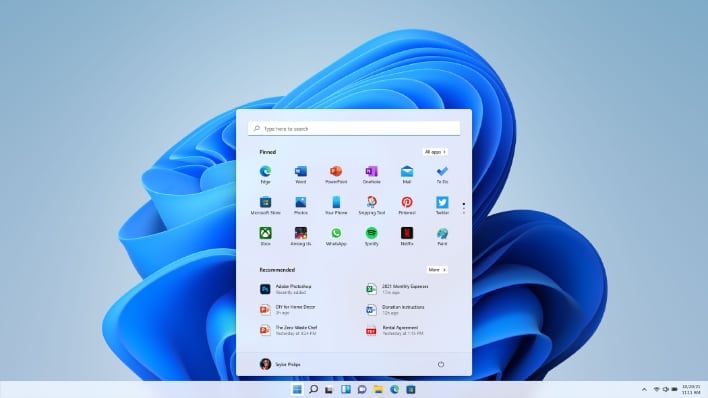The Windows 7 To Windows 11 Upgrade Won't Be A Simple Transition For Users
It's worth noting that Windows 7 was first released back in 2009 and was replaced by Windows 8 in late 2012. However, it's not likely that PCs that initially shipped with Windows 7 even meet the minimum hardware requirements for Windows 11, which necessitates a TPM 2.0 module and an Intel 8th generation Core or AMD Ryzen 2000 processor (among other stipulations).
But even if your PC does meet these requirements, Lenovo is explaining that the upgrade procedure from Windows 7 to Windows 11 won't be as simple as it is for those running Windows 10. According to Lenovo:
Most devices available for purchase now will be upgradeable to Windows 11. You will have the option to upgrade, clean install, or reimage Windows 10 devices to move to Windows 11. For Windows 7 devices that meet hardware requirements, you will need to clean install or reimage to go directly to Windows 11.
The clean install option would probably be advisable for customers who are comfortable backing up their data in preparation for a significant upgrade. Likewise, businesses would probably be more apt to go the reimage route.

However, there's still another option that customers could take, which involves taking advantage of the free upgrade from Windows 7/8/8.1 to Windows 10, and then upgrading from there (again, for free) to Windows 11. It's not exactly a streamlined approach, but it will allow customers to keep their apps and data in place when migrating from Windows 7 to Windows 11.
However, this might all be for naught, given that general consumers and businesses clung to Windows 7 aren't impressed by Windows 10. And it's unlikely that they would be bowled over by Windows 11. And even they were apt to accept Windows 11; it's likely that their hardware isn't supported in the first place.


